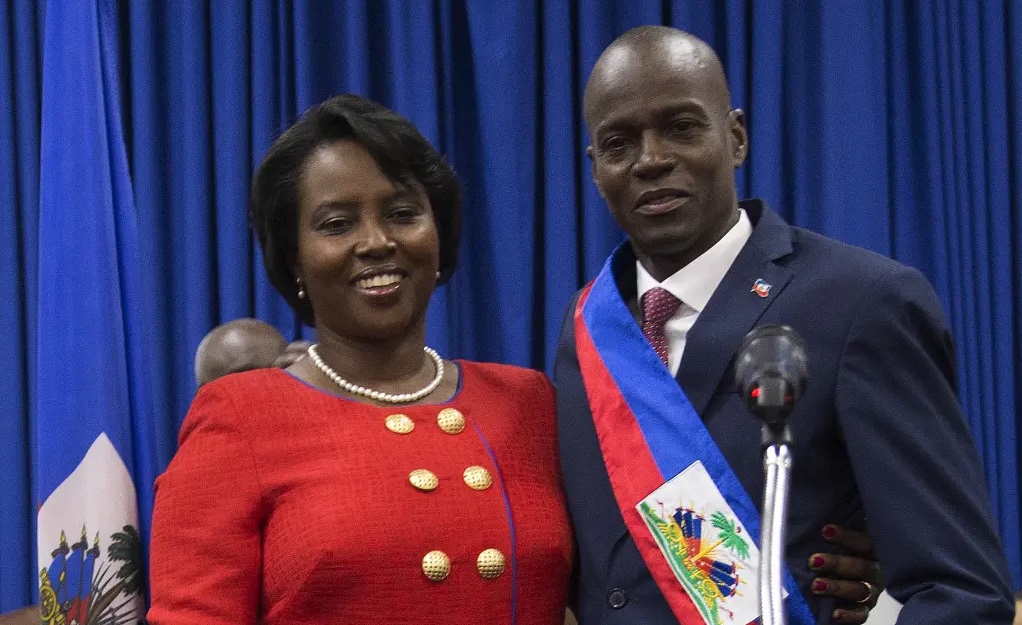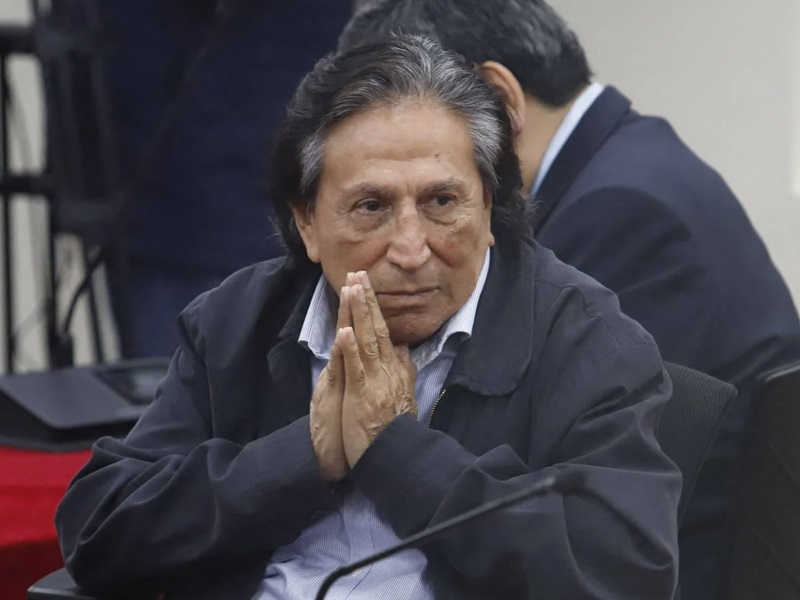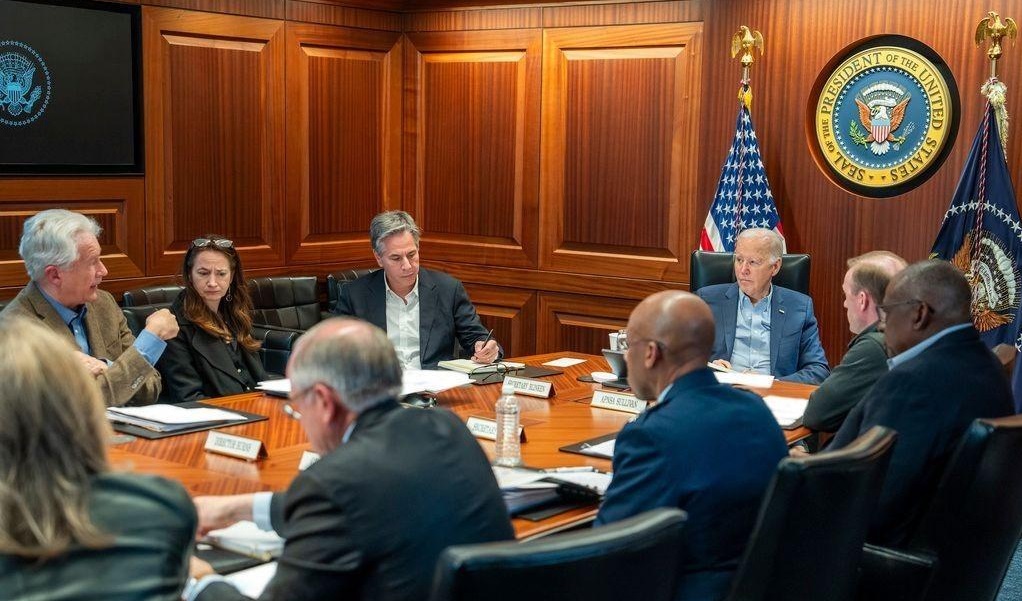Foreign
Wife of Haiti’s assassinated president indicted in his killing

A judge in Haiti investigating the July 2021 assassination of President Jovenel Moïse indicted his widow, Martine Moïse, ex-prime minister Claude Joseph and the former chief of Haiti’s National Police, Léon Charles, among others in his killing.
Dozens of suspects were indicted in the 122-page report issued by Walther Wesser Voltaire, who is the fifth judge to lead the investigation after previous ones stepped down for various reasons, including fear of being killed.
Charles, who was police chief when Moïse was killed and now serves as Haiti’s permanent representative to the Organization of the American States, faces the most serious charges: murder; attempted murder; possession and illegal carrying of weapons; conspiracy against the internal security of the state; and criminal association.
Meanwhile, Joseph and Martine Moïse, who was injured in the attack, are accused of complicity and criminal association.
Joseph, the former prime minister, shared a statement with The Associated Press accusing Henry of “undermining” the investigation and benefitting from the president’s death.
“Henry … is weaponizing the Haitian justice system, prosecuting political opponents like me. It’s a classic coup d’état,” Joseph said. “They failed to kill me and Martine Moïse on July 7th 2021, now they are using the Haitian justice system to advance their Machiavellian agenda.”
Joseph again called on Henry to resign and noted that while he was still prime minister, he invited the FBI to help local authorities investigate the killing and wrote the U.N. and OAS for help.
“I won’t stop my fight. Justice must be served,” he said.
In his report, the judge noted that the former secretary general of the National Palace, Lyonel Valbrun, told authorities that he received “strong pressure” from Martine Moïse to put the president’s office at the disposal of Joseph because he needed it to “organize a council of ministers.”
Valbrun also said that two days before her husband was killed, Martine Moïse visited the National Palace and spent nearly five hours, from 10 p.m. to 3 a.m., removing “a bunch of things.”
He said that two days after Jovenel Moïse was slain, Martine Moïse called to tell him that, “Jovenel didn’t do anything for us. You have to open the office. The president told Ti Klod to create a council of ministers; he will hold elections in three months so I can become president, now we will have power.”
While the document did not identify Ti Klod, the former prime minister, Claude Joseph, is known by that name.
The judge also stated in his report that Martine Moïse “suggested” she took refuge under the marital bed to protect herself from the attackers, but he noted that authorities at the scene found that not “even a giant rat…whose size measures between 35 and 45 centimeters” could fit under the bed.
The judge said the former first lady’s statements were “so tainted with contradictions that they leave something to be desired and discredit her.”
Others who face charges including murder are Christian Emmanuel Sanon, a Haitian-American pastor who visualized himself as Haiti’s next president and said he thought Moïse was only going to be arrested; Joseph Vincent, a Haitian-American and former informant for the U.S. Drug Enforcement Administration; Dimitri Hérard, presidential security chief; John Joël Joseph, a former Haitian senator; and Windelle Coq, a Haitian judge whom authorities say is a fugitive.
Sanon, Vincent, and Joseph were extradited to the U.S., where a total of 11 suspects face federal charges in the slaying of Haiti’s president. At least three of them already have been sentenced.
Meanwhile, more than 40 suspects are languishing in prison in Haiti awaiting trial, although it was not immediately clear how quickly one would be held following Monday’s indictments. Among them are 20 former Colombian soldiers.
Milena Carmona, wife of Jheyner Alberto Carmona Flórez, told The Associated Press that he is innocent.
“What’s happening is that this crime is a conspiracy of great magnitudes in which powerful people are behind the scenes running everything, and that’s why they’re not given freedom,” she said of the former soldiers.
U.S. prosecutors have described it as a plot hatched in both Haiti and Florida to hire mercenaries to kidnap or kill Moïse, who was 53 when he was slain at his private home near the Haitian capital of Port-au-Prince.
The attack began late July 6 and ended July 7, according to witnesses.
Martine Moïse and others who were interrogated said they heard heavy gunfire starting around 1 a.m. that lasted between 30 to to 45 minutes before armed men burst into the bedroom of the presidential couple.
Moïse said she was lying on the ground when she heard the attackers yell, “That’s not it! That’s not it! That’s not it!”
She said the suspects made a video call to identify the exact location of what they were searching as they killed the president. She added that she was face down when the suspects tilted her head and tugged on one of her toes “to ensure that she wasn’t alive.”
Once they left, Moïse said she dragged herself on the ground and whispered to her husband that she was going to try and go to the hospital.
“That’s when she noticed that the president was dead and that his left eye had been removed from the socket,” the report stated.
Moïse said a group of about 30 to 50 police officers were supposed to guard the presidential residence, but the judge noted that only a handful of officers were present that night.
One officer told the judge that he heard explosions and a voice through a megaphone saying, “Do not shoot! It’s a DEA operation! US Army! We know how many officers are inside. Exit with two hands lowered.”
Another officer said the head of security of the first lady found her “in critical condition” surrounded by her two children. He said he also saw an undetermined number of people coming out of the president’s residence “with briefcases and several envelopes in their possession.”
The report quotes Inspector General André Vladimir Paraison saying that the president called him at 1:46 a.m. and told him, “Paraison! Man, hurry up! I’m in trouble! Come quickly and save my life.” He said he encountered heavily armed men and couldn’t access the residence immediately.
Officers at the scene said they found cars, windows, and doors at the president’s private home riddled with bullet holes, along with surveillance cameras cut off and a broken lock on the double-wooden door leading to the presidential bedroom.
The judge said some police officers at the residence were disarmed and handcuffed, while others “had time to throw themselves down a ravine” for safety. In addition, the police officer overseeing presidential security was accused of receiving $80,000 to bribe certain officers “to remain inactive” during the assassination, according to the report.
The judge noted how “none of the police providing security to the head of state was in danger. Unfortunately, the head of state was assassinated with ease.”
Foreign
Bribery: Peru ex-President Toledo convicted of sentenced to 20 years in prison

Former Peruvian President Alejandro Toledo has been sentenced to 20 years and six months in prison for taking bribes from Brazilian construction giant Odebrecht.
The 78-year-old, who governed Peru from 2001 to 2006, was convicted of accepting $35 million in exchange for awarding Odebrecht a contract to build a road connecting Peru’s southern coast to Brazil’s Amazon region.
This marks Peru’s first high-profile conviction related to the continent-wide Lava Jato corruption scandal, which implicated officials across Latin America. Odebrecht, now known as Novonor, admitted in 2016 to bribing officials in 12 countries to secure public contracts.
Toledo, who denied the charges of money laundering and collusion throughout the trial, has been battling cancer and pleaded last week to serve his sentence at home, asking, “Please let me heal or die at home.”
He is currently detained in a Lima prison, where Toledo has been detained since last year. Former President Pedro Castillo is also being held there as he faces allegations of “rebellion” after trying to dissolve Congress in 2022.
Two other ex-presidents, Pedro Pablo Kuczynski and Ollanta Humala, are also being investigated in the Odebrecht case.
Toledo’s conviction relied on testimonies from former Odebrecht executive Jorge Barata and Toledo’s ex-collaborator, Josef Maiman, who confirmed the bribes. The road project began under Toledo’s administration but was completed under his successors.
Foreign
Zambian president sacks top judges who ruled in favour of his rival

Zambia’s President Hakainde Hichilema has now sacked three top judges he previously suspended over alleged judicial misconduct, drawing further accusations of political interference in the judiciary.
The three Constitutional Court judges presided over a presidential petition in 2016 in which they dismissed Hichilema’s challenge against the election victory of former President Edgar Lungu.
They also took part in a controversial ruling allowing Lungu to stand in the 2021 elections, despite having twice served as Zambia’s president.
Their dismissal comes after they lost a court application for a review of a judicial panel’s decision recommending their suspension.
On Sunday evening, a statement released by the presidency said they had been “removed with immediate effect” following a recommendation by the Judicial Complaints Commission (JCC).
“The removal of the judges is in exercise of the powers vested in the President under [the Zambian constitution],” it said.
The three judges – Justice Annie Sitali, Justice Mungeni Mulenga, and Justice Palan Mulonda – have not publicly commented on the matter.
The JCC had investigated them over allegations of gross misconduct following a complaint by Moses Kalonde, a private citizen.
Last year, the JCC rejected a complaint from lawyer Joseph Busenga, who had petitioned for the removal of the three judges, alleging that they had mishandled the 2016 election petition.
There has been mixed reactions to the dismissal of the judges.
Political tensions have been in rising in Zambia ahead of elections in 2026, when Hichilema and Lungu are expected to face each other for a fourth time.
Social and political commentator Laura Miti says informed Zambians are split between those who feel this is a legal but self-serving move by the president and others who back him.
“My view is that the judges misbehaved spectacularly in the presidential petition in 2016. That being true this comes across as the president exacting revenge for their judgment which is highly concerning,” she told the BBC.
But Makebi Zulu, Lungu’s lawyer in the case, termed the move an “illegality” telling the BBC that “it was executive overreach aimed at interfering with the independence of the judiciary”.
“No judge should be disciplined for carrying out their judicial function,” he said.
Under Zambia’s constitution, all judges, including the chief justice, are appointed by the president upon the recommendation of the JCC and with the approval of the National Assembly.
Political analyst Sishuwa Sishuwa says the “reality is that we will always have the problem of incompetent and unqualified judges as long as the process of appointment is led by the executive.
“It does not matter who is in power,” he posted on X, adding that a “structured and broad-minded approach” is more beneficial than “targeted and individual changes”.
Source: bbc.com
Foreign
US investigating release of classified documents on Israel’s planned strike on Iran

The top-secret documents highlight that Israel is mobilizing military assets in preparation for a military response to Iran’s recent ballistic missile attack on October 1.
The United States government is investigating the unauthorized release of classified documents that detail Israel’s military strategies concerning a potential attack on Iran.
According to three U.S. officials who spoke to the Associated Press, a fourth source confirmed the legitimacy of the documents, which were attributed to the National Geospatial-Intelligence Agency (NGA) and the National Security Agency (NSA).
The top-secret documents highlight that Israel is mobilizing military assets in preparation for a military response to Iran’s recent ballistic missile attack on October 1.
Notably, the documents were sharable within the intelligence-sharing alliance known as the “Five Eyes,” which includes the U.S., Great Britain, Canada, New Zealand, and Australia.
First reported by CNN and Axios, the sensitive materials were posted on the Telegram messaging app, prompting immediate concerns over national security.
Officials, who requested anonymity due to the sensitivity of the matter, revealed that the investigation is probing the origins of the leak, including whether it stemmed from an intentional disclosure by someone within the U.S. intelligence community or if it was acquired through alternative means such as hacking.
AP reports that the U.S. has urged Israel to capitalize on the elimination of Hamas leader Yahya Sinwar by pushing for a cease-fire in Gaza.
The U.S. has also strongly cautioned Israel against escalating military operations in northern Lebanon, warning of the potential for a wider regional conflict.
Despite this, Israeli leadership has reiterated its stance of responding decisively to missile attacks from Iran.
In a statement, the Pentagon acknowledged awareness of the leaked documents but declined to provide further comment.
The Israeli military has not yet responded to inquiries regarding the leak of two documents, which first surfaced online Friday via a Telegram channel claiming the leak originated from within the U.S. intelligence community.
The information appears to have been compiled through satellite image analysis.
One of the leaked documents was formatted similarly to materials from the National Geospatial-Intelligence Agency, previously leaked by Jack Teixeira, an Air National Guardsman who pleaded guilty in March to charges related to disclosing highly classified military documents concerning Russia’s war in Ukraine and other national security matters.
The Telegram channel responsible for the leak identifies itself as based in Tehran, Iran’s capital, and has previously shared content featuring Iran’s Supreme Leader Ayatollah Ali Khamenei, as well as material supporting Tehran’s so-called “Axis of Resistance,” which includes militant groups in the Middle East armed by the Islamic Republic.
-

 Economy22 hours ago
Economy22 hours agoSEE Black Market Dollar To Naira Exchange Rate Today, October 24 2024
-

 News24 hours ago
News24 hours agoHow Power Minister, Adelabu Survived Tinubu’s Sledgehammer
-

 News13 hours ago
News13 hours agoReps Give Five-day Ultimatum To Perm Sec, Works Ministry Over N1.46bn Abandoned Road Project
-

 News13 hours ago
News13 hours agoYou Should Be Sanctioned For Perjury’, PTD Chides NUPENG President
-

 News11 hours ago
News11 hours agoForeign object hits VP Shettima’s Plane in US, aborts Commonwealth trip
-

 Entertainment24 hours ago
Entertainment24 hours agoBobrisky Complained of Chest Pain, hospitalised
-

 News23 hours ago
News23 hours agoTinubu moves to cut down cost of governance after cabinet overhaul
-

 News15 hours ago
News15 hours agoCaycee Mboya, tallest woman in Kenya, wants to be a second wife








